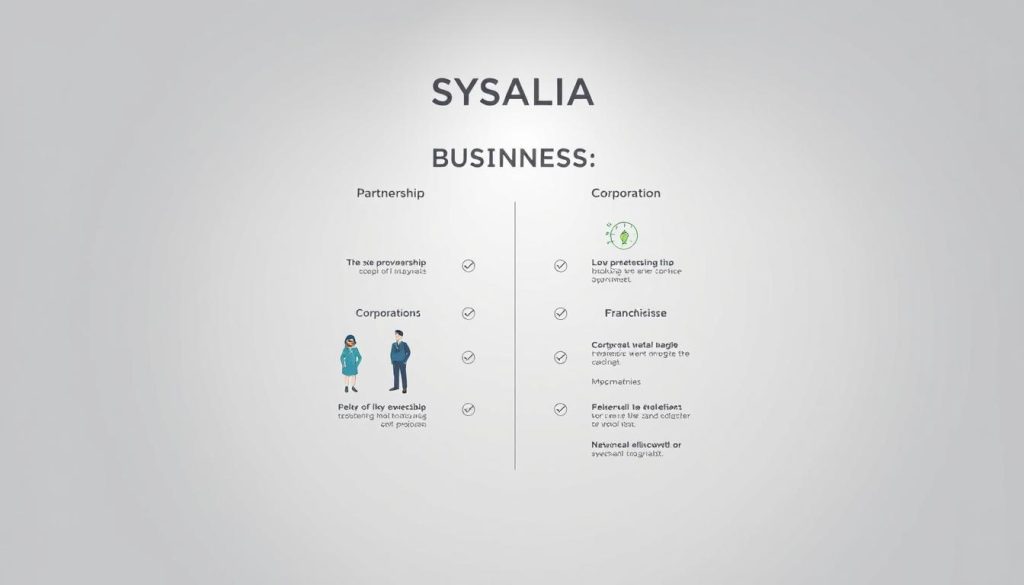Starting your own business can feel overwhelming, but with the right guidance, it’s an exciting journey. In France, more people than ever are turning their projet into reality—over 650,000 micro-enterprises launched in 2022 alone. Whether you’re exploring a side activité or diving into full-time self-employment, this guide is your roadmap.
The French market thrives on innovation, and with 13% of the workforce now self-employed (OECD data), opportunities are growing. Success starts with the right mindset, strategic planning, and understanding legal requirements. This guide simplifies each step, whether you’re a first-time founder or scaling an existing entreprise.
Table of Contents
Key Takeaways
- France’s entrepreneurial landscape is booming, with 650,000+ micro-enterprises created in 2022.
- Mindset and planning are critical for turning your projet into a sustainable business.
- Legal compliance ensures smooth operations and long-term growth.
- Self-employment now makes up 13% of France’s workforce, per OECD data.
- This guide supports both new and experienced business owners.
Understanding the Entrepreneurial Mindset
French entrepreneurs credit mindset as their #1 success factor. A study by the French Chamber of Commerce reveals 78% faced major setbacks early on. Yet, those who thrived shared one trait: resilience.
Why Patience and Persistence Matter
Jean-Paul Getty, founder of Getty Oil, famously called patience the “greatest asset” in affaires. In France, new ventures often need 6 months to gain traction. Rushing decisions can cost you your place in the market.
Consider these resilience-building techniques used by French business coaches:
| Technique | How It Helps | Example |
|---|---|---|
| Cognitive Reframing | Turns failures into lessons | Viewing a rejected pitch as feedback |
| Daily Micro-Goals | Builds momentum | Securing 3 client calls/week |
| Mentorship | Provides aide and perspective | Joining a local entrepreneur network |
Learning from Failure
In France, 6 out of 10 startups fail within 5 years. But here’s the twist: 90% of successful entrepreneurs say early failures taught them crucial lessons. The key is to analyze missteps without self-blame.
Try this approach:
- Document: Keep a log of challenges and solutions.
- Adapt: Pivot strategies based on data, not emotions.
- Network: Lean on peers who’ve navigated similar affaires hurdles.
How to Become an Entrepreneur: Step-by-Step
Every successful venture starts with a well-defined idea and market validation. In France, 42% of first-time founders succeed by rigorously testing their concepts early. Follow this roadmap to transform your vision into a viable entreprise.
Identifying Your Business Idea
Business France’s ideation framework simplifies this process. Start by analyzing gaps in your secteur or refining an existing service. For example, a Lyon bakery spotted demand for gluten-free options after reviewing local search trends.
Use these tools to refine your concept:
- INSEE SIRENE Database: Track competitors’ chiffre affaires and locations.
- Surveys: Ask target customers about unmet needs.
- Trend Reports: Identify rising demands (e.g., eco-friendly packaging).
Validating Market Demand
Quantitative methods (like sales forecasts) and qualitative feedback (customer interviews) work best together. The Lyon bakery tested recipes at pop-up markets before committing to a création entreprise.
Key validation steps:
- Run a pilot (e.g., limited-time service).
- Compare pricing models using INSEE data.
- Adjust based on real-world responses.
Pro Tip: Download our Market Validation Checklist to avoid costly missteps.
Creating a Solid Business Plan
A well-structured business plan acts as your roadmap to success. In France, 63% of ventures with detailed financial models secure funding, per Bpifrance data. Whether you’re seeking loans or grants, clarity in your plan builds credibility.
Key Components of a Business Plan
France’s Pacte Loi (Article 61) requires specific elements. Follow this framework to ensure compliance and investor confidence:
- Executive Summary: Concisely outline your vision and revenu goals.
- Market Analysis: Use INSEE data to validate demand.
- Financial Projections: Adopt HEC Paris’ 3-year template for accuracy.
Pro Tip: Avoid common SECU audit triggers by documenting all assumptions. For example, overestimating sales by 30% often raises red flags.
Financial Projections and Funding
Funding options vary widely in France. Compare these étapes to make informed choices:
| Option | Avg. Rate | Best For |
|---|---|---|
| Crowdfunding | 14% | Innovative startups |
| Bank Loans | 6% | Established credit history |
Regional grants, like Hauts-de-France’s startup package, offer additional support. Learn more about financial management for self-employed professionals.
Choosing the Right Business Model

France offers multiple legal structures, each with distinct financial implications. Your statut juridique affects everything from tax rates to personal liability. We’ll compare options to help you make an informed choice.
When to Choose Sole Proprietorship
Entreprise Individuelle (EI) suits solos wanting simplicity. But social charges reach 45% of net profits. Consider these factors:
- Low startup costs: No minimum capital required
- Full control: No shareholder meetings
- Asset risks: Personal property isn’t protected
For partial protection, file a Déclaration d’insaisissabilité at the commercial court. This shields your home from business creditors.
Micro-Enterprise Advantages
The micro-entreprise régime simplifies taxes for small operations. URSSAF sets annual revenue limits:
| Activity Type | 2024 Threshold |
|---|---|
| Services | €72,600 |
| Goods Sales | €176,200 |
A Parisian marketing consultant switched to SASU when hitting €85k revenue. Her corporate tax dropped from 45% to 22%, saving €15,000 annually.
5 Signs You Need Incorporation
Upgrade to a société structure when:
- Exceeding auto-entrepreneur thresholds
- Hiring employees
- Seeking investor funding
- Operating high-liability services
- Planning international expansion
CFE registration varies by model. SARL filings take 15 days versus 48 hours for micro-entreprise. Choose based on your growth timeline.
Legal and Administrative Steps
Navigating legal requirements is crucial for launching your business smoothly. France’s 2023 reforms cut registration time to 48 hours for SMEs via guichet-unique.fr. We’ll guide you through each step to ensure compliance and avoid costly delays.
Registering Your Business in France
Simplify démarches with this step-by-step process:
- Choose Your Structure: EI, SARL, or SASU (refer to Section 5).
- Submit Online: Use the CFE portal with your SIRET application.
- Receive KBIS: Your business ID arrives in 2–5 days.
Common RCS errors to avoid:
- Incomplete activity codes (NAF/APE).
- Mismatched legal and trading names.
- Missing déclaration of beneficial owners.
Opening a Business Bank Account
Your compte bancaire must meet these conditions:
| Bank Type | Key Feature |
|---|---|
| Traditional (BNP, Société Générale) | In-person support, higher fees |
| Neobank (Qonto, Shine) | Digital-first, 50% lower costs |
Required documents:
- KBIS extract (less than 3 months old).
- Proof of address and ID.
- Professional liability insurance (€200–€500/year).
Pro Tip: Neobanks approve accounts 3x faster but may lack physical branches. Choose based on your formalités and cash-handling needs.
Financial Management for Entrepreneurs

Smart financial management separates thriving businesses from struggling startups. In France, proper gestion can reduce tax burdens by 34% through legal deductions. This section breaks down essential practices to optimize your revenus while staying compliant.
Tracking Revenue and Expenses
French accounting software simplifies financial tracking. Compare these top options:
| Software | Best For | Annual Cost |
|---|---|---|
| Quadratus | Detailed reporting | €490 |
| Ciel | User-friendly interface | €360 |
Key features to prioritize:
- Automatic bank feeds for real-time chiffre updates
- Receipt scanning to capture deductible expenses
- URSSAF-compliant reporting formats
Tax Obligations and Deductions
France’s imposition system offers three VAT schemes:
- Franchise en base: Exempts businesses under €36,800 revenue
- Réel simplifié: For €36,800–€247,000 with simplified filing
- Réel normal: Mandatory above €247,000 with monthly payments
Commonly missed deductions include:
- Home office costs (up to 30% of rent/mortgage)
- Professional training expenses
- 50% of meal receipts with clients
A Marseille retailer saved €8,200 their first year by:
- Tracking all mileage with a logbook
- Claiming market research trips as expenses
- Using droit to defer VAT payments during slow seasons
URSSAF payments follow strict schedules. Late submissions incur 10% penalties. Set calendar reminders for quarterly declarations if you’re under the micro-entreprise regime.
Scaling and Growing Your Business
Successful scaling combines team building with smart marketing tactics. In France, entreprises that implement systematic growth plans see 68% higher customer retention rates. Whether expanding your team or reaching new markets, these strategies ensure sustainable progress.
Building a Strong Team
Your first hire impacts company culture and compliance. French labor law offers two primary options:
| Contract Type | Key Features | Best For |
|---|---|---|
| CDI (Permanent) | Job security, higher social charges | Core team members |
| Auto-entrepreneur | Flexibility, limited protections | Project-based work |
Essential outils for team management:
- Payroll software like PayFit automates URSSAF declarations
- CRM systems boost collaboration (68% retention improvement)
- Training platforms such as CPF-approved courses
Marketing and Customer Acquisition
Digital channels deliver the best ROI for French entreprises. Compare these ligne advertising options:
| Platform | Avg. Cost per Click | Conversion Rate |
|---|---|---|
| Google Ads | €1.20 | 3.8% |
| Facebook Ads | €0.80 | 2.1% |
Regional marché strategies that work:
- Localize content with regional dialects
- Partner with area influencers
- Highlight local sourcing in campaigns
DGE-Approved Scaling Checklist:
- Secure growth financing (BPI loans start at 1.5% interest)
- Document standard operating procedures
- Conduct quarterly capacity reviews
Conclusion
Your journey from idea to thriving entreprise is within reach. From validating your projet to hitting €100k revenue, each milestone builds confidence and expertise.
France’s CPF system supports ongoing learning—84% of consultants boost skills through professional development programs. With 82% of entrepreneurs reporting high satisfaction, your activité can thrive too.
Ready to begin? CMA France’s mentorship programs offer tailored guidance. Devenir entrepreneur starts with one step: launch your declaration today.
FAQ
What is the first step to starting a business?
The first step is identifying a viable business idea and validating market demand. Research your target audience and competition to ensure profitability.
What’s the difference between a sole proprietorship and incorporation?
A sole proprietorship is simpler but offers no liability protection. Incorporation provides legal separation between personal and business assets but involves more paperwork.
How do I register my business in France?
Register with the Centre de Formalités des Entreprises (CFE) and choose a legal structure (e.g., micro-entreprise or SARL). Submit required documents online or in person.
Do I need a business bank account?
Yes, separating personal and business finances is crucial. Most banks offer dedicated accounts for entrepreneurs with tailored services.
What tax obligations do entrepreneurs have?
Taxes vary by structure. Auto-entrepreneurs pay simplified taxes, while incorporated businesses face corporate tax. Keep detailed records for deductions.
How can I fund my startup?
Options include personal savings, bank loans, grants (e.g., BPI France), or investors. A solid business plan improves approval chances.
What’s the best way to track finances?
Use accounting software like QuickBooks or Wave. Monitor cash flow, expenses, and revenue monthly to stay profitable.
How do I scale my business?
Focus on hiring the right team, refining marketing strategies, and expanding your customer base through digital channels like SEO and social media.





